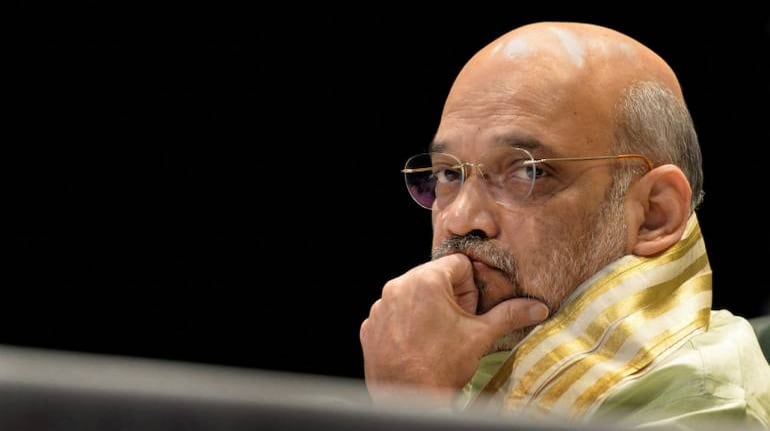



The Citizenship (Amendment) Bill will be brought again, Union Home Minister Amit Shah said on September 9.
At the same time, Shah also tried to allay concerns of stakeholders from the Northeast regarding special provisions that some of the states there enjoy. The home minister insisted that special laws specific to the region will not be touched.
"We will ensure that existing laws of all states of the region remain as they are even after the introduction of the Citizenship (Amendment) Bill. We have no intention to touch any of these laws applicable to different states of the region", Shah said on September 9.
Shah was addressing the fourth conclave of the North East Democratic Alliance (NEDA), which is the northeastern version of the Centre's ruling National Democratic Alliance (NDA).
Concerns in Northeast remainSome of BJP’s allies have voiced concerns over reintroduction of the Citizenship (Amendment) Bill. They fear that CAB could alter the demography of the northeastern states. They wanted that their states be kept out of the purview of the CAB.
Meghalaya Chief Minister Conrad Sangma urged Shah to take all the states of the region into confidence before bringing in the legislation again. "What will happen after CAB? Will people continuously come from Bangladesh? Will there be any deadline or a continuous flow? We in Northeast have such fears," Sangma said.
Strongly opposing the bill, BJP ally and Nagaland Chief Minister Neiphiu Rio said the "highly controversial" Citizenship (Amendment) Bill will change the demography of the Northeast, if it is implemented by the Centre.
Mizoram Chief Minister Zoramthanga has requested Shah to exclude the North East from the purview of the Citizenship (Amendment) Bill. "The Citizenship Bill is a very very sensitive issue here. In most of the states where political parties supported it, they are on the verge of suicide," he said.
The Bill proposed to accord Indian citizenship to Hindus, Jains, Christians, Sikhs, Buddhists and Parsis from Bangladesh, Afghanistan and Pakistan after seven years of residence in India instead of 12 years, which is the norm currently, even if they do not possess any document.
The home minister also said even the cut-off date for CAB will remain December 31, 2014.
It was passed by the 16th Lok Sabha on January 8. However, it could not be tabled in the Rajya Sabha following resistance from multiple parties, including some of BJP’s allies. There were protests against the bill in several parts of the Northeast. The Bill lapsed after the 16th Lok Sabha’s term ended.
CAB has to now retake the complete legislative route, if it needs to be passed. It was not tabled during the Budget Session of Parliament.
Impact on AssamShah’s reiteration that the Centre plan to reintroduce the Bill comes at a time when the BJP is dealing with an unfavourable outcome of the National Register of Citizens (NRC) exercise in Assam.
The final NRC was published on August 31. About 3.11 crore people made it to the list while the names of over 19 lakh were missing. Many people who are missing from NRC, belong to the Hindu Bengali community – BJP’s traditional vote base in Assam.
Reports suggest that the BJP has rolled out a multi-pronged strategy to salvage the situation there. The strategy includes wooing Hindu Bengalis with CAB, among other tactics.
(With inputs from PTI)Discover the latest Business News, Sensex, and Nifty updates. Obtain Personal Finance insights, tax queries, and expert opinions on Moneycontrol or download the Moneycontrol App to stay updated!
Find the best of Al News in one place, specially curated for you every weekend.
Stay on top of the latest tech trends and biggest startup news.